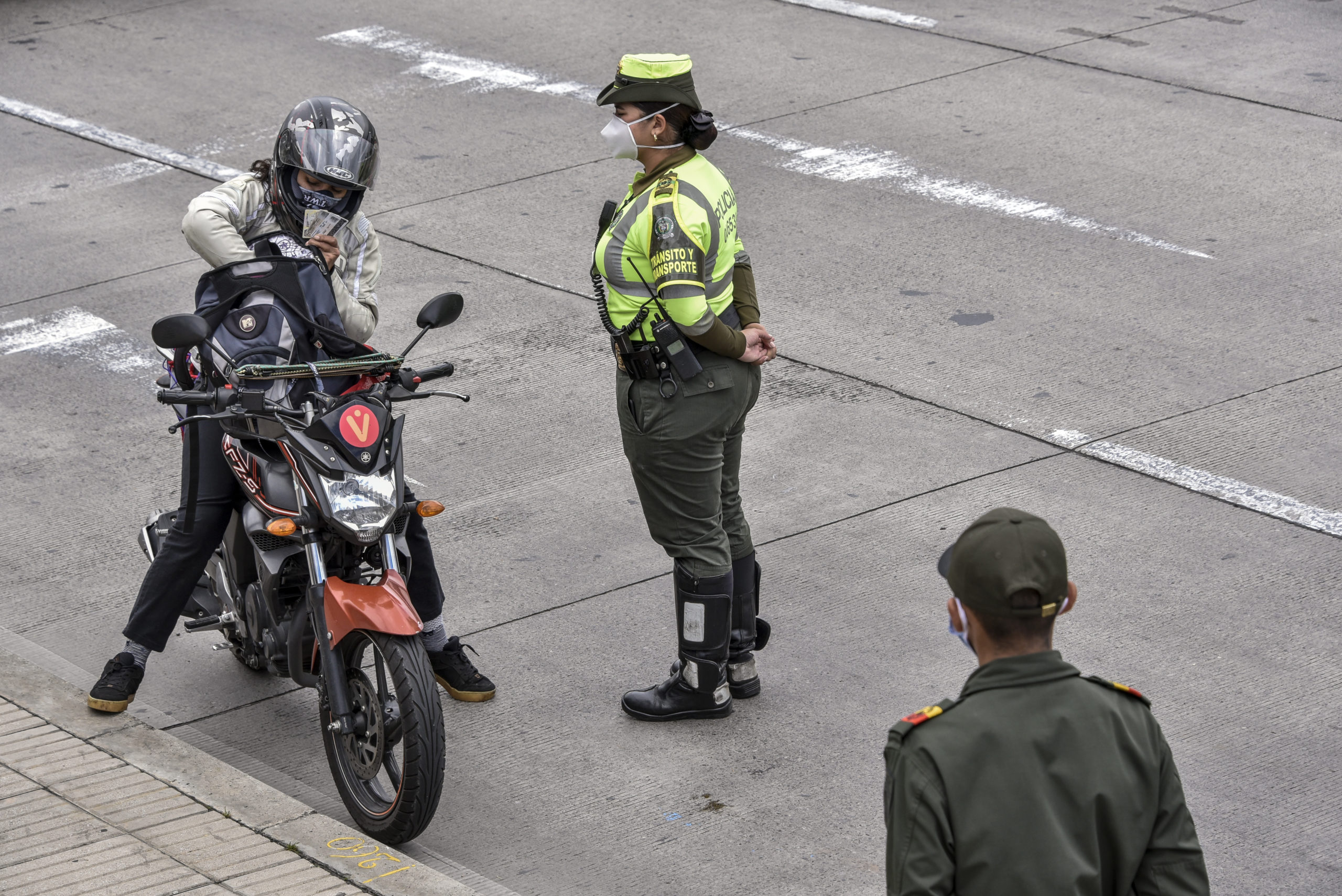A police officer asks for documents at a checkpoint on April 21, 2020 in Bogota, Colombia. (Guillermo Legaria/Getty Images)
Gender-based lockdown rules in Bogotá, Colombia, will be lifted after they fuelled a wave of violence against transgender people living in the city.
Bogotá’s mayor, Claudia Lopez, said in a virtual press conference on Friday (May 8) that the rules, which have been in place for a month, will be lifted as of tomorrow.
The measures are similar to those implemented in Peru – where the rules have also been lifted – and Panama.
They have been heavily criticised by LGBT+ groups and transgender people, who say the restrictions have exposed them to violence and discrimination from people questioning their right to be outside.
Under Colombia’s gender-based lockdown rules, introduced in an effort to limit the number of people on the streets during the coronavirus pandemic, men and women were allowed outside to shop on separate days.
When she introduced the restrictions, Lopez had assured the trans community that they should go out on the day corresponding to their gender identity and not be forced to go out on the day corresponding to their legal gender.
She also said that the city authorities would not stop people and ask for ID to check gender.
But human-rights groups reported that the policy has triggered a rise in attacks against the trans community from both police and the public.
Red Comunitaria Trans told Reuters it had received 18 discrimination complaints since the measure began, one being from a trans woman who was stabbed by a man who said she was out on the wrong day.
The group has called for the policy to be dropped, saying: “The separation by sex in times of COVID-19 is putting our lives and safety at risk.”
In Panama, the trans community had similar fears about the gender-based lockdown – fears that were immediately realised on the first day they were implemented, when a trans woman called Bárbara Delgado was stopped by police on her way to work.
Police saw the male gender marker on her ID card and took her to the police station, where she was accused of not being a woman, held for three “humiliating” hours and then released with a fine, according to Human Rights Watch.
In Peru, the measures were lifted early after similar incidents of transphobia, violence and public humiliation were reported across the country.
